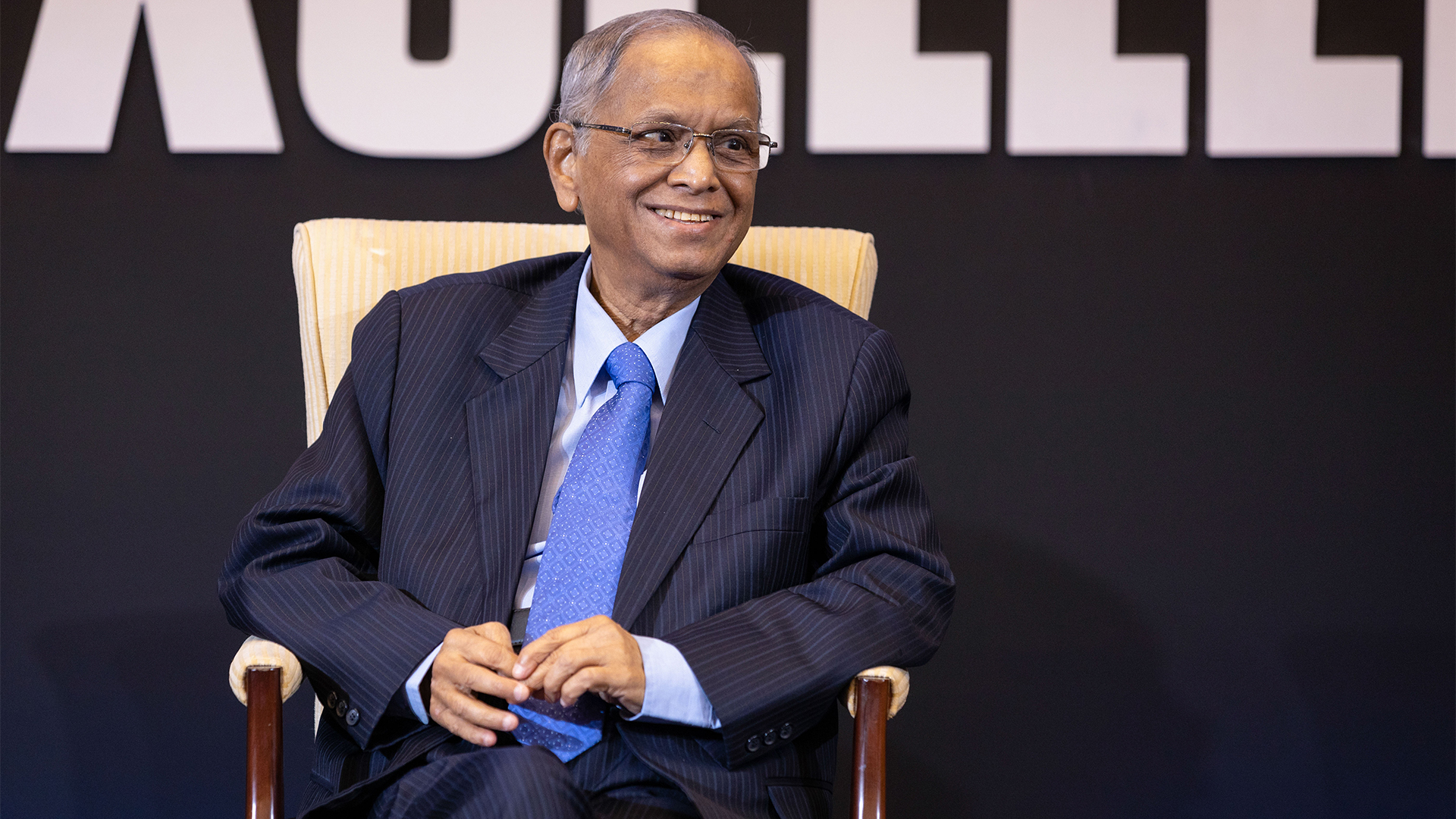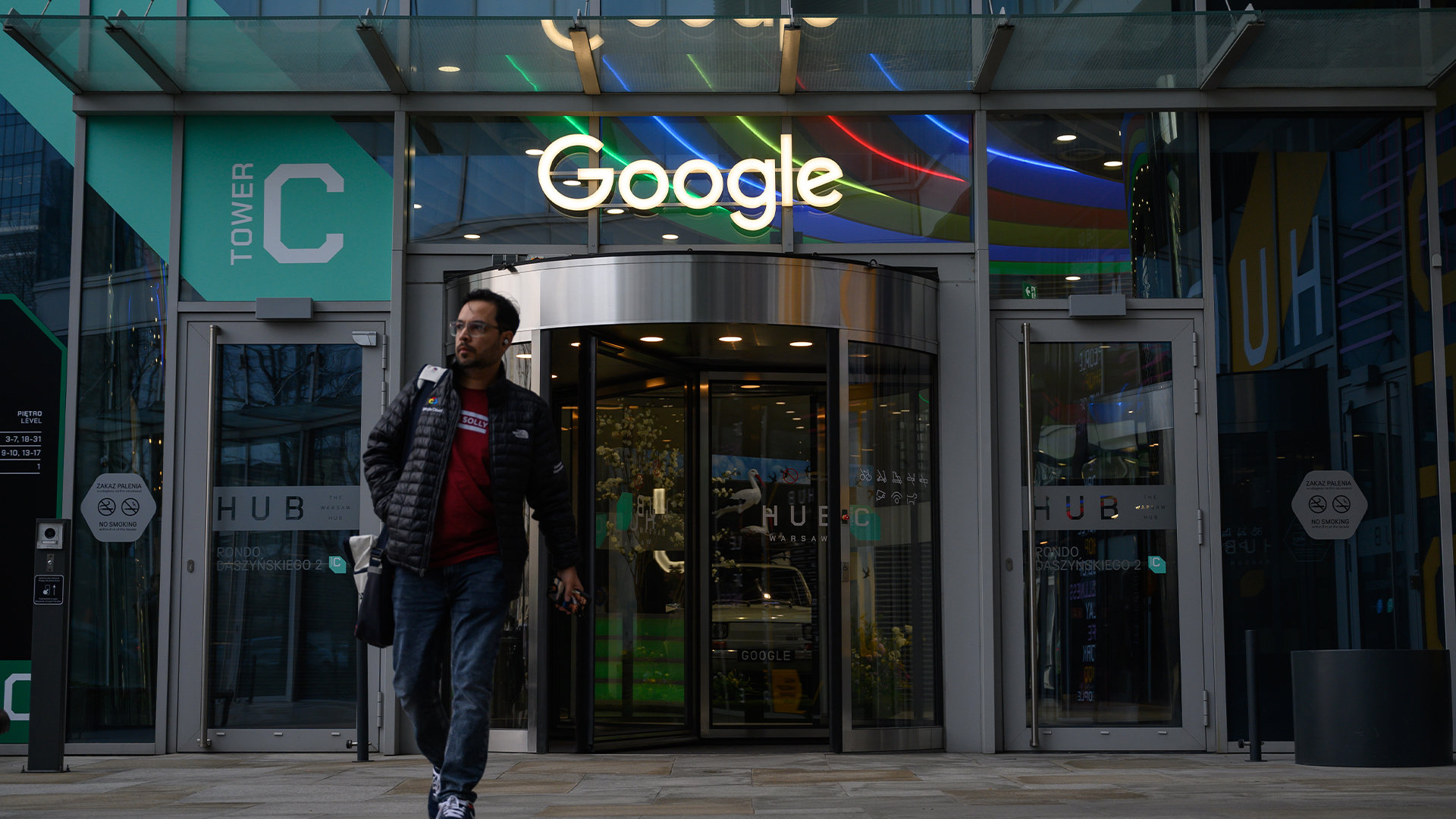'The tide seems to be turning towards office attendance': 64% of hybrid business leaders want staff back in the office – but many worry that enforcing RTO mandates will drive employees away
Employers need to marry their own expectations of office attendance with staff needs


Sign up today and you will receive a free copy of our Future Focus 2025 report - the leading guidance on AI, cybersecurity and other IT challenges as per 700+ senior executives
You are now subscribed
Your newsletter sign-up was successful
Many UK business leaders want their staff back in the office more frequently, but they’re scared to implement return to office (RTO) mandates in fear of worker revolts.
That’s according to a study from Hubble, which found that 52% of founders expressed a desire for their teams to work in-person. Just 12% said they didn’t mind.
There is concern about pushback from staff, though, with 60% of business leaders worried that stricter office mandates could lead to a surge in resignations.
RTO mandates have proved a controversial element of workplace strategy, Hubble noted. A host of major tech firms have faced staff revolts over stricter attendance strategies in the last year, including Amazon and Dell Technologies.
While RTO mandates are a risky strategy, Hubble’s research suggests that many firms that have adopted office-based strategies are satisfied with their approach. Leaders of fully office-based companies were the least likely to anticipate change in their workplace strategy over the next year.
“The tide seems to be turning towards office attendance. More founders are deciding that perhaps the office is the best place for their employees to be, and they’d like them to come in more often,” Hubble said.
Should business leaders enforce office attendance?
Only 7% of respondents claimed to strictly enforce office attendance by punishing non-attenders with disciplinary measures. More than one-third (37%) moderately enforce office attendance though, meaning it’s mandated but not backed up by disciplinary measures.
Sign up today and you will receive a free copy of our Future Focus 2025 report - the leading guidance on AI, cybersecurity and other IT challenges as per 700+ senior executives
Hubble said this raises important questions over how businesses can bring employees back into the office when they aren’t strictly mandating office attendance.
It’s not the office that employees are resisting, though, according to Rebecca Perrault, VP of culture and diversity at Magnit. They’re resisting the mandates themselves, which Perrault thinks mistake visibility for value.
"The best companies don’t need attendance policies to force collaboration; they create workplaces where people want to show up because the time spent together is purposeful, not performative,” Perrault told ITPro.
“The workforce has changed. Top talent is asking: does coming into the office help me do my best work, or is this just a box to tick? If employers can’t answer that question convincingly, they shouldn’t be surprised when their best people vote with their feet,” she added.
RTO polices that focus simply on compliance will push top talent away, Perrault said, and businesses should try and refocus the conversation away from mandates and onto valuing the impact of staff rather than in person attendance.
RTO has caused serious backlash before
Business leaders are right to be worried about how staff might react to stricter RTO mandates given the stir these moves have caused over the last year.
Amazon has been a central part of the conversation, with CEO Andy Jassy announcing in September that the firm would be pivoting to a full five-day RTO scheme.
AWS CEO Matt Garman echoed the sentiment a month later, suggesting staff unhappy with the move should look for work elsewhere.
Employees at the tech giant have been less than pleased with the shift, with hundreds of staff complaining that the move will negatively impact their personal lives with little improvement to efficiency, according to an anonymous survey circulated via Slack.
Dell has been in a similar position since it introduced an RTO mandate, with a leaked internal survey revealing a plummet in a key employee satisfaction metric.
One Dell employee told Business Insider at the time that they had “never seen” a score move that quickly toward the negative.
A generational clash on RTO
The conversation around RTO has also revealed a generational divide, with multiple studies finding that Gen Z is eager to get back into the office while older members of staff are happier with remote working setups.
Research from last year found 80% of younger workers would prefer more time in the office, while research from earlier this month found 91% of Gen Z workers crave a balance between in-person and remote work.
RELATED WHITEPAPER

More than two-thirds (69%) claimed that technology has made them feel more disconnected with others in their company or industry, a more pronounced figure than in other generations.
61% and 62% of millennials and Gen X feeling disconnected as a result of technology, respectively.
Many Gen Z workers feel that remote working will also impact their careers, the study found, with many believing that in-person attendance of live events is beneficial to businesses relationships and personal growth.
MORE FROM ITPRO
- What are return to office (RTO) mandates and why is big tech embracing them?
- 2024 was the year of the RTO mandate – 2025 will be worse
- In an age of RTO hardliners, Spotify’s stance on remote work is a breath of fresh air

George Fitzmaurice is a former Staff Writer at ITPro and ChannelPro, with a particular interest in AI regulation, data legislation, and market development. After graduating from the University of Oxford with a degree in English Language and Literature, he undertook an internship at the New Statesman before starting at ITPro. Outside of the office, George is both an aspiring musician and an avid reader.
-
 ITPro Best of Show NAB 2026 awards now open for entries
ITPro Best of Show NAB 2026 awards now open for entriesThe awards are a fantastic opportunity for companies to stand out at one of the industry's most attended shows
-
 Mistral CEO Arthur Mensch thinks 50% of SaaS solutions could be supplanted by AI
Mistral CEO Arthur Mensch thinks 50% of SaaS solutions could be supplanted by AINews Mensch’s comments come amidst rising concerns about the impact of AI on traditional software
-
 SMB hybrid working requires a rethink when it comes to network design
SMB hybrid working requires a rethink when it comes to network designIndustry Insights SMBs have embraced hybrid working but their networks lag behind
-
 Infosys co-founder Narayana Murthy called for a 70 hour week last year — now he says that’s not enough
Infosys co-founder Narayana Murthy called for a 70 hour week last year — now he says that’s not enoughNews Murthy thinks longer hours akin to China’s '996' approach are the key to success
-
 Microsoft could be preparing for a crackdown on remote work
Microsoft could be preparing for a crackdown on remote workNews The tech giant is the latest to implement stricter policies around hybrid working without requiring a full five days in the office
-
 Half of British companies want an end to hybrid working – but they’re playing with fire if they expect employees to comply
Half of British companies want an end to hybrid working – but they’re playing with fire if they expect employees to complyNews A survey by British Chambers of Commerce suggests approval of hybrid working depends on sector
-
 HSBC says get back to the office or risk bonuses – and history shows it’s a tactic that might backfire
HSBC says get back to the office or risk bonuses – and history shows it’s a tactic that might backfireNews HSBC is the latest in a string of financial services firms hoping to tempt workers back to the office.
-
 Hybrid models have changed the way we work – but not where we live
Hybrid models have changed the way we work – but not where we liveNews The wider impact of working from home has been limited by requiring employees in the office for a few days a week, academic research suggests
-
 Google tells some remote workers to return to the office or risk losing jobs
Google tells some remote workers to return to the office or risk losing jobsNews Google has warned remote workers will need to return to the office or else lose their jobs, according to reports.
-
 Young tech professionals are shunning a full-time return to the office – unless it pays more
Young tech professionals are shunning a full-time return to the office – unless it pays moreNews Young tech professionals who entered the workforce post-pandemic expect on-site work to be paid more than remote options.